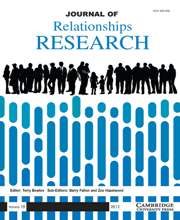No CrossRef data available.
Article contents
Changes and Challenges: Parenting Challenges in Iranian Mothers
Published online by Cambridge University Press: 16 December 2020
Abstract
Having adolescents affect many aspects of the parent's lives. The aim of this study was to investigate the parenting challenges within the cultural background of Iranian mothers. The participants consisted of 24 mothers who were selected using a purposive sampling method. Semistructured interviews were recorded and transcribed for further analysis. To analyse the data, a thematic analysis was carried out. The analysis of the data shows that for Iranian mothers, parenting challenges are categorised into seven themes: (a) Sense of diminished power and control, (b) Sense of inadequacy, (c) Lack of father's participation, (d) New situation, coping and resolve, (e) Altered relationships issues, (f) Unfulfilled expectations, and (g) Environmental threats. Based on the findings of our study, parenting challenges are culture-bound and controversial, and dealing with them requires parental training.
- Type
- Research Article
- Information
- Copyright
- Copyright © The Author(s), 2020. published by Cambridge University Press




